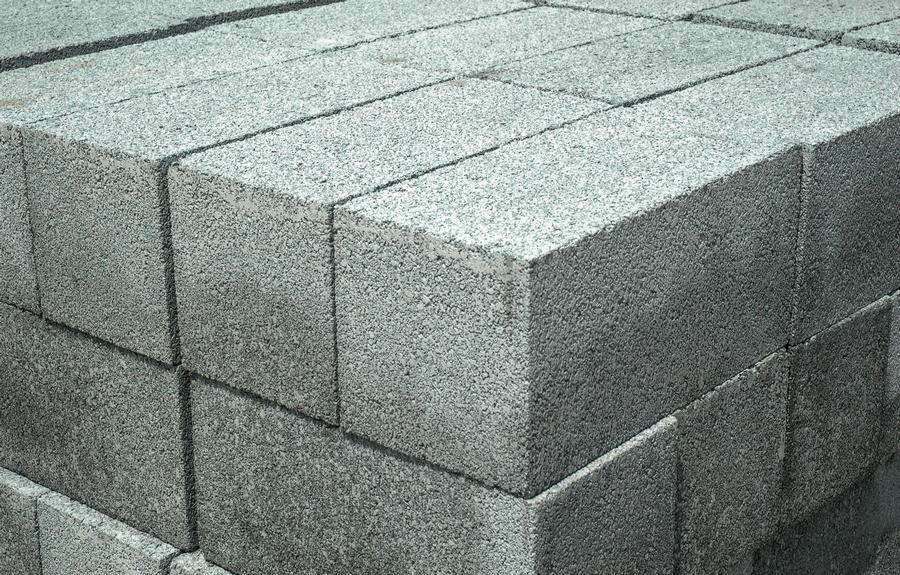Solid Blocks
Solid blocks are concrete blocks that are less hollow than other blocks. They are made of high-quality materials, such as portland cement, sand, gravel, and water. Solid blocks have a high compressive strength, making them suitable for use in load-bearing walls and structures. They are also durable and have a long lifespan.Solid blocks are used for constructing walls of homes, gardens, or commercial buildings. They provide strong protection from heavy rainfall or high-speed blowing wind.Solid blocks, also known as concrete blocks or concrete masonry units (CMUs), are a fundamental component in modern construction. They are manufactured through a mixture that combines Portland cement, water, and aggregates like sand, gravel, or crushed stone. This mixture is then poured into molds to form blocks of various sizes and shapes, which are subsequently cured to achieve the necessary hardness and durability for construction use.

Advantages of Solid Blocks
Structural Integrity
Solid blocks provide significant structural strength, making them suitable for constructing load-bearing walls and foundations. Their high compressive strength ensures they can support substantial loads, contributing to the overall stability of buildings.
Fire Resistance
One of the standout features of solid blocks is their inherent fire resistance. They are non-combustible and can withstand high temperatures without losing structural integrity, making them an excellent choice for fire safety in buildings.
Thermal Mass
These blocks possess high thermal mass, meaning they can absorb and store heat energy. This characteristic helps in moderating indoor temperatures, leading to more stable and comfortable living environments and potentially reducing energy costs associated with heating and cooling.
Sound Insulation
Thanks to their density, solid blocks offer good sound insulation properties. They can effectively reduce noise transmission through walls, making them ideal for residential buildings, schools, hospitals, and other structures where noise reduction is desirable
Moisture Resistance
Solid blocks have a relatively low water absorption rate, which makes them resistant to moisture ingress. This property is crucial in preventing mold growth and water damage, ensuring the longevity and health of buildings.
Sustainability
While the production of solid blocks requires energy and natural resources, innovations in manufacturing have introduced ways to incorporate recycled materials into the blocks. Efforts are continuously made to improve the environmental footprint of these construction materials.
Cost-Efficiency
Although the initial cost might be higher compared to some alternative materials, the durability and low maintenance requirements of solid blocks can make them a more economically viable option over the long term. Their uniform size and shape also contribute to ease of installation, reducing labor costs.
Versatility
Solid blocks are incredibly versatile in their application. They can be used in a wide range of construction projects, including exterior and interior walls, retaining walls, and foundations. Furthermore, they can be easily finished with paint, plaster, or other materials to achieve the desired aesthetic
In summary, solid blocks are a durable, fire-resistant, and cost-effective choice for construction, offering benefits in terms of structural strength, thermal and sound insulation, and moisture resistance. Their versatility and ease of use make them a popular choice among builders and architects for a wide array of construction projects.
Differences between solid blocks and bricks:
- Composition: Bricks are made from clay, water, and aggregate. Concrete blocks are made from concrete bonded together with mortar.
- Water resistance: Concrete blocks are more water resistant than bricks.
- Weight: Concrete blocks are lighter than bricks per square meter.
- Size: Solid concrete blocks are larger than bricks, so they can be quicker to use in masonry.
- Tensile strength: Cement concrete blocks have more tensile strength than bricks.
- Appearance: Solid concrete blocks look like gray bricks, but are usually larger.
- Fire resistance: Concrete blocks have good fire resistance properties.
- Thermal insulation: Concrete blocks have great thermal insulation.
- Sound insulation: Concrete blocks have excellent sound insulation.
- Brittleness: Bricks are denser than concrete blocks, but they are brittle, which reduces their tensile strength.
Benefits of Using Solid Blocks
Solid concrete blocks are used in construction projects to provide a strong, durable, and cost-effective building material. They are commonly used in foundation walls, retaining walls, load-bearing walls, and as pavers, edging, and landscaping blocks.
Bricks are used for structural walls, exterior and interior walls, bearing and non-bearing sound proof partitions, fireproofing of structural-steel members, foundations for stucco, chimneys and fireplaces, porches and terraces, and more.






